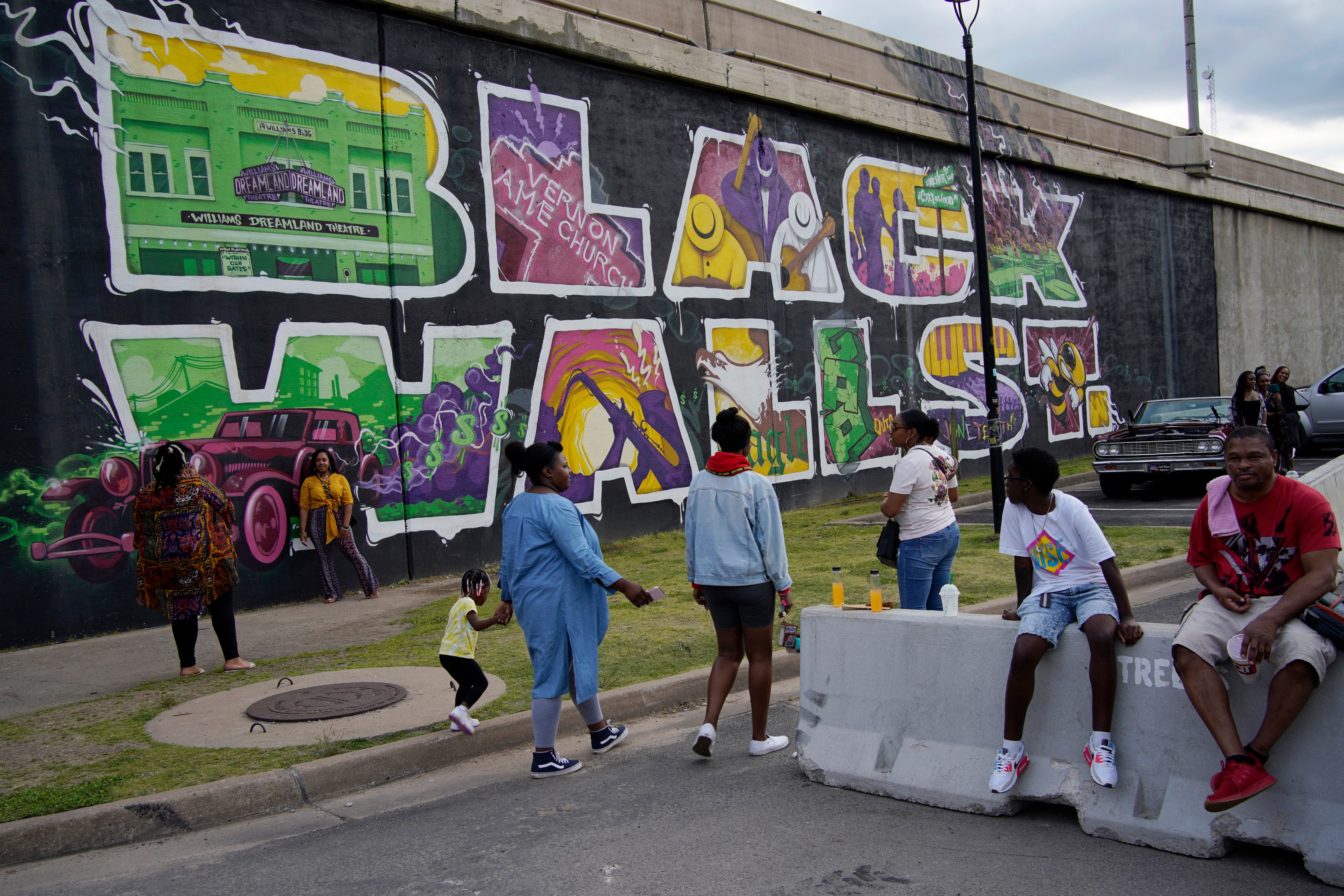Biden unveils new plans to close racial wealth gap ahead of Tulsa visit
Administration to support minority-owned businesses and combat housing discrimination

President Joe Biden has outlined a new set of policies to close the white-Black wealth gap in the US.
He is set to present them in a speech recognising the 100th anniversary of the Tulsa race massacre, when a white mob brutalised a flourishing Black community, upending generations of Black wealth and displacing thousands of Black residents.
The administration is taking aim at addressing disparities in home ownership and appraisals, and will lean on the federal government’s purchasing power to expand federal contracting with small disadvantaged businesses.
“Because disparities in wealth compound like an interest rate, the disinvestment in Black families in Tulsa and across the country throughout our history is still felt sharply today,” the White House announced on Tuesday.
The plans, including reversals of Trump-era policies that have previously been announced, arrive on the heels of the centennial recognition of one of the bloodiest episodes of racist violence in the US, when as many as 300 people were killed by a white mob that torched the Greenwood neighbourhood and its “Black Wall Street”.
Mr Biden travels to Tulsa on 1 June to deliver remarks and visit the Greenwood Cultural Center.
But the systemic violence that followed in the decades after the attack continues to resonate not just in Tulsa but across the US, from the impacts of redlining, exclusionary zoning laws, “urban development” initiatives and other forms of housing discrimination to the construction of federal highways through Black communities.
Marcia Fudge, the US Secretary of Housing and Urban Development, will lead an interagency effort to address inequity in home appraisals, as “homes and majority Black neighbourhoods are often valued at tens of thousands of dollars less than comparable homes in similar, majority white communities”, the White House said.
“This effort will seek to utilise, very quickly, the many levers at the federal government’s disposal ... to root out discrimination in the appraisal and home buying process,” according to the White House.
HUD will also reverse Trump-era rules related to the Fair Housing Act to strengthen anti-discrimination efforts.
The administration also has set a goal to increase the share of federal contracts to small, disadvantaged businesses – which are by definition are at least 51 per cent owned by people who are both socially and economically disadvantaged, including African Americans – by 50 per cent over the next five years.
Contracts with those businesses currently make up roughly 10 per cent of federal contracts. An increase to 50 per cent by 2026 funnel an additional $100bn into minority-owned businesses within the next five years, according to officials.
Mr Biden’s announcement does not address two crucial elements that advocates argue would dramatically address the legacies systemic injustice: canceling student loan debt and offering reparations, which lawmakers are currently mulling in Congress.
The president will also propose billions of dollars for a Community Revitalization Fund as part of his infrastructure-focused American Jobs Plan to boost federal investments in high poverty areas facing gentrification creep and public transit; activate vacant lots and buildings for public use; and provide grants for infrastructure projects, among other proposals.
The median wealth of white households was $189,100 in 2019, according to the Center for American Progress. For Black households, it was $24,100.
The public health crisis and economic fallout from the coronavirus pandemic has widened the gap between Black and white households, the report found.
In Tulsa, which remains incredibly segregated, unemployment among Black residents remains 2.5 times higher than white residents, and the median household income among white residents is nearly $25,000 higher than the Black median household income, a gap that has grown within the last four years, according to Human Rights Watch.
Join our commenting forum
Join thought-provoking conversations, follow other Independent readers and see their replies
Comments


Bookmark popover
Removed from bookmarks